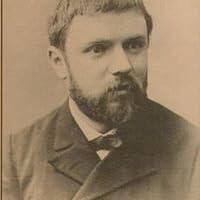
Henri Poincaré
À propos de l'auteur
Henri Poincaré was a renowned French mathematician, theoretical physicist, and philosopher of science, widely recognized as one of the founders of topology and modern dynamical systems. His work laid the groundwork for many areas of mathematics and physics, including celestial mechanics, where he made significant contributions to the understanding of the three-body problem. Poincaré's insights into the stability of planetary orbits and his formulation of the Poincaré conjecture have had lasting impacts on the field, demonstrating his exceptional ability to blend rigorous mathematics with practical applications in physics.
Beyond his mathematical achievements, Poincaré was also interested in the philosophy of science, advocating for the importance of intuition in mathematical thought. He wrote extensively on the nature of scientific theories and the role of mathematics in understanding the universe. His notable works include "The Measure of Time" and "The Three-Body Problem," where he explored the intricate relationships between mathematical concepts and physical reality. His legacy endures in contemporary mathematics and physics, influencing countless researchers and scholars in their pursuits of knowledge.